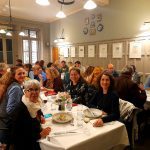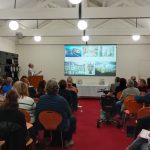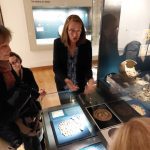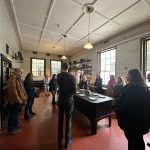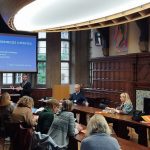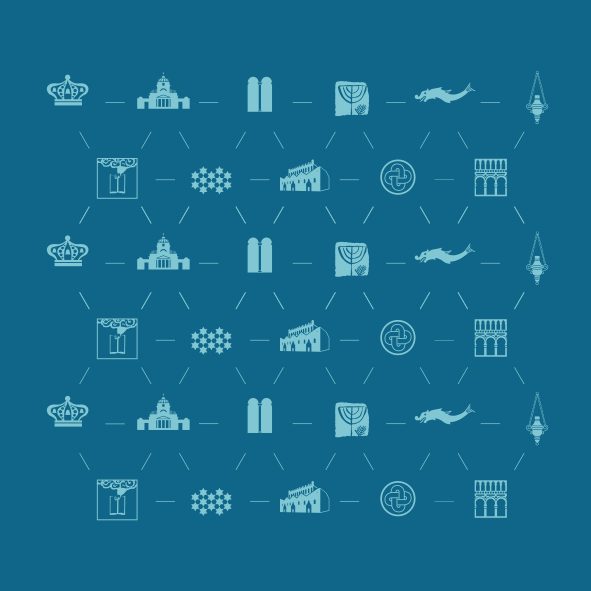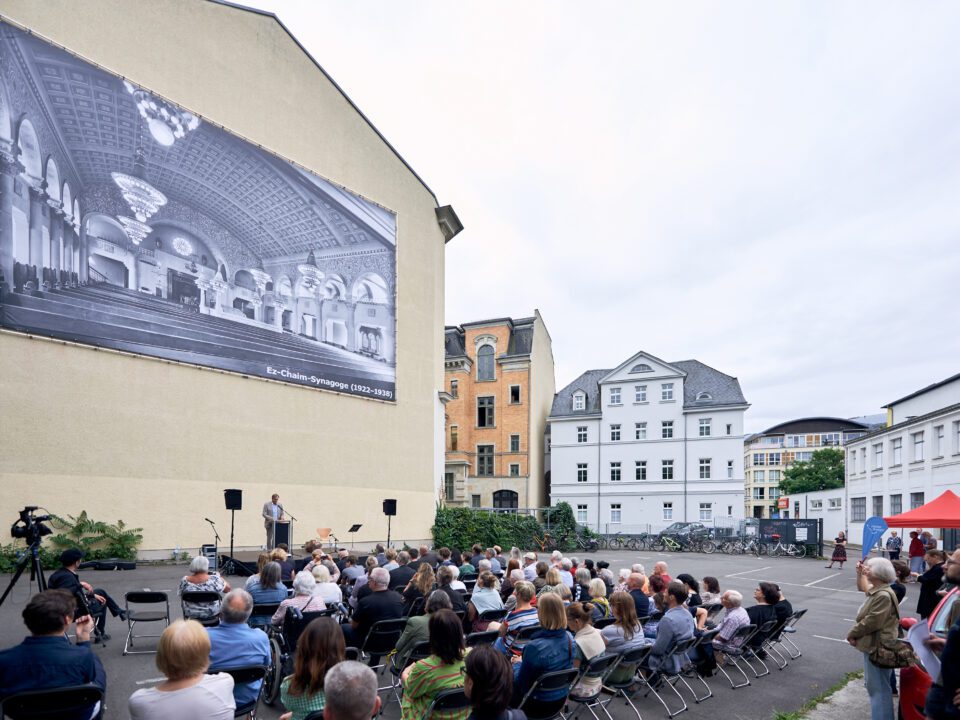6th edition of the European Routes of Jewish Heritage Incubator takes place in Oxford, United Kingdom


The annual training meeting of the European Routes of Jewish Heritage (ERJH), explicitly designed and aimed at the network of Route managers, reached its sixth edition (the fifth face-to-face) this September, from Monday 23rd to Wednesday 25th, hosted by the University of Oxford and Waddesdon Manor, the developers of the Palaces, Villas and Country Houses Route, based on a long term research project, Jewish Country Houses – Objects, Networks, People (JCH). On this occasion, the programme aimed to delve into the specificities of the members of the ERJH, providing more specific training in the different approaches the Incubator deals with.
Participants explored the process of creation and development of the JCH from its conceptualization, continuous research, the construction of a network of heritage sites and regular dissemination activities. Based on the presentations made by nine panellists, key figures on the development of the JCH project, combined with visits to three heritage sites (Waddesdon Manor, Gunnersbury Museum and Strawberry Hill House). These three experiences were complemented by a visit at the Ashmolean Museum, were Rebecca Abrams mediated the interpretation of collections that are not oriented to Jewish heritage narratives can contribute to the wide knowledge on Jewish history; and a visit at the Hebrew manuscripts of the Bodleian Library collection. The five experiences showcased very different approaches that let the participants to analyse how heritage sites, museums and archives are contributing to Jewish heritage narratives even when are not focused on that.
Secondly, and as usual, members of the AEPJ Scientific committee, such as Jeremy Leigh, professor at the Hebrew Union College Jerusalem, are taking the lead of the core part of the training, which included a round table analysing the transmission of the research outputs into the Routes’ cultural programmes and heritage mediation resources, as well as four workshops, developed in cooperation with Jack Shepherd, senior lecturer at Mid Sweden University. Splitting the group to allow more individualised work, the training focused on how are the Jewish heritage narratives navigating in the current contemporary situation, and on multiple study cases of cultural routes that focusing themselves on intercultural dialogue and culture for peace. In that sense, this edition explored formulas that offer more relevant support to members, while facilitating the exchange of experiences and empirical knowledge that Route managers accumulate.
Thirdly, the community of route managers of the ERJH focused the discussion on two other workshops on its development as a network of practitioners, on one hand defining the pillars for a system for quality evaluation of the Routes, and on the other one stablishing the agreements for the governance system of the Routes.
The event gathered 42 practitioners from 16 European countries, being able to disseminate the European Routes of Jewish Heritage between the practitioners linked to the Jewish Country Houses. On the other side, it has been a successful gathering for the Route managers, who have been able to discuss widely about strategic dealings to focus in the upcoming period; foreseeing several actions to implement as a follow-up.


